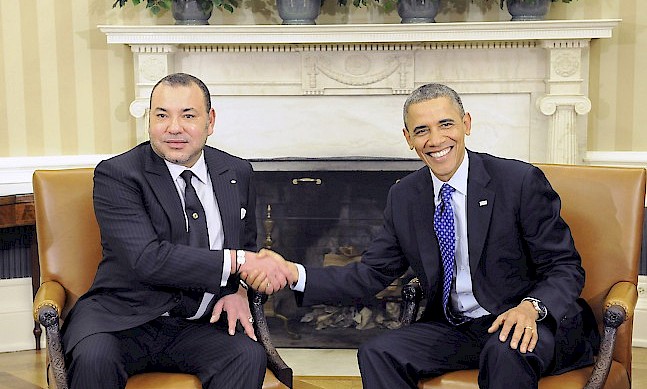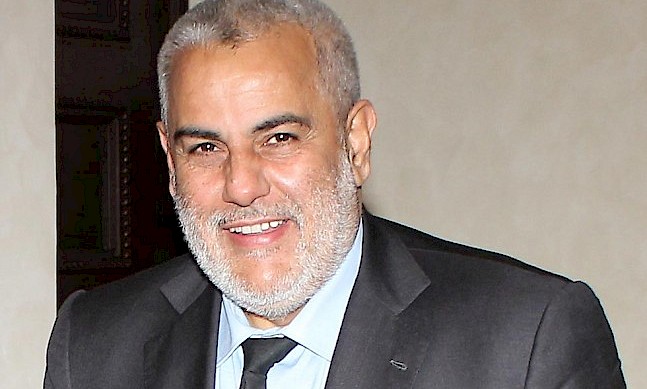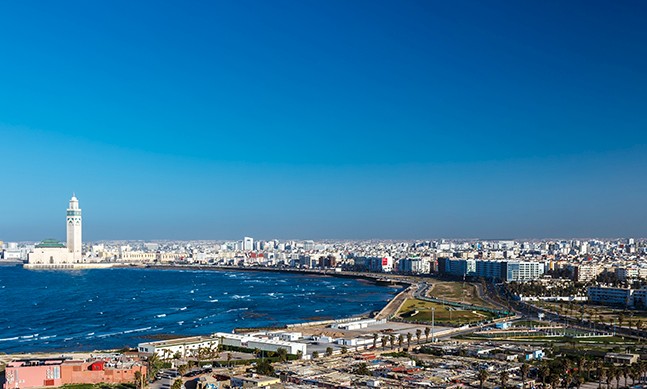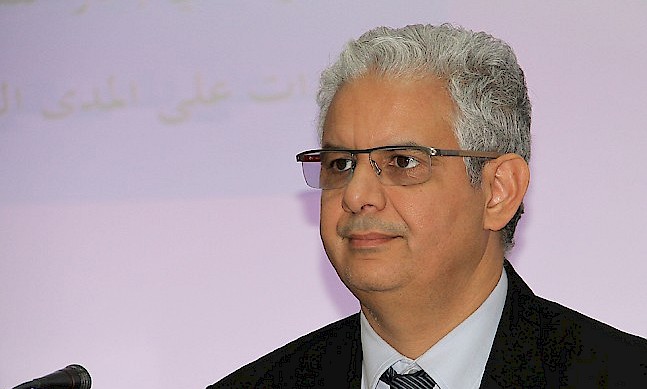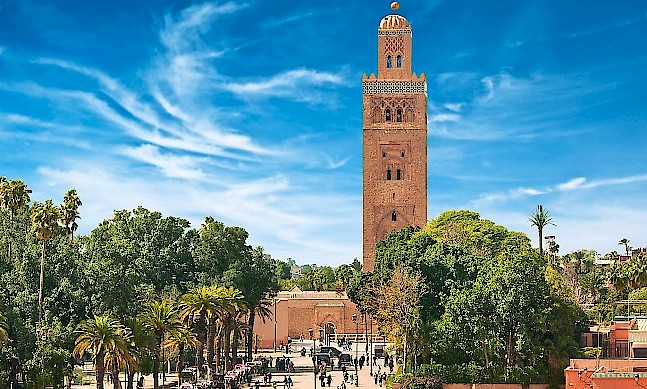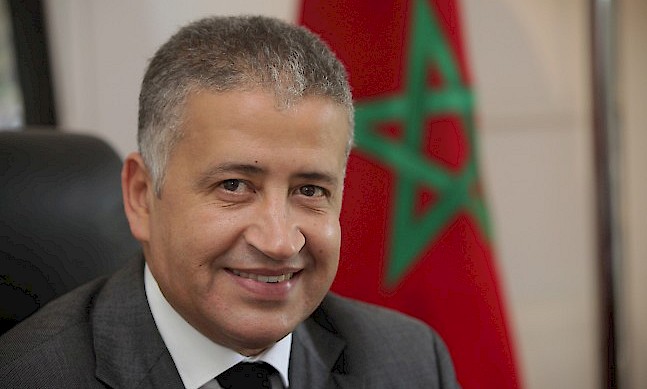Abdel-Ilah Benkiran was appointed chief of government in 2011, after his party formed a coalition with three parties that had been part of previous governments. A key figure in maintaining stability in Morocco during the Arab Spring, he is now focused on steering the North African country through the various challenges it still faces, from consolidating democracy to ensuring regional development. The Report Company met with him to learn more.
The Report Company: Over the last decade, Morocco has undergone profound changes, marking the beginning of a new era of opening to the world. What is your analysis of this transition?
Abdel-Ilah Benkiran: Morocco made its strategic choices at the dawn of its independence, opting for political pluralism, free social and economic enterprise and guaranteed rights and freedoms.
In order to consolidate its unique model in the region, Morocco has embarked upon a transition over more than the last two decades, through the launching of a series of political, economic and social reforms. This transition has generally been correctly conducted, despite tensions around the sharing of power and some episodes that were marked by the hegemonic inclinations of certain players.
The arrival of His Majesty Mohamed VI to the throne has really helped to change the game in many fields, enabling us to move farther ahead in the right direction. Morocco has also had to face the turmoil of the Arab Spring, towards which His Majesty the King once again made the right choice by demonstrating both the determination to guarantee the stability of our country, and the will to respond to the desires of the citizens in terms of widening the democratic space, strengthening justice and reducing inequality.
“I have worked to reaffirm the rule of law, restore the principles of meritocracy and convince citizens to reconcile themselves with politicsTweet This
and public life”
TRC: What sets Morocco apart from others in the region who were greatly affected by the Arab Spring?
AB : The peaceful transition that Morocco is engaged in is due to a voluntary and proactive initiative, under the banner of ‘reform within stability’. This vision was best embodied in the historical Royal Speech of March 9, 2011, the adoption of a new constitution in July 2011 and the organization of legislative elections on November 25 of the same year, which led me to take on the role of head of the current government.
The success of this transition has also been consolidated as a result of government taking a series of difficult decisions and responsible measures, be that in terms of restoring political credibility, or strengthening competitiveness and economic efficiency, or in terms of tackling social issues.
As chief of government, I have realized that first of all, it was necessary to reaffirm the rule of law, restore the principles of meritocracy and convince citizens to reconcile themselves with politics and public life.
There was a certain time when in order to get a job, one had to be well-connected, or from an important family, have money or be a political militant or trade unionist, who would make a lot of noise and then be paid in exchange for one’s silence.
Strikes became commonplace. The situation was untenable in the long term. The government had to fix this quickly by enshrining the competitive exams as the only means of access to civil service, thereby establishing equal opportunities for everyone. Moreover, a common-sense, fair decision was taken to bring wages in line with the work actually carried out, and to impose salary levies on strikers. Since then, Morocco has no longer experienced strikes, or at least not very many. The most important is that our citizens understand that in order to achieve success, they will first have to work.
I could cite several other measures that did not have unanimous support at the start, and that have required a lot of courage. Despite the pressure, I stayed the course, remained resilient, and the people ended up thanking me for doing so.
On the economy side, we have opted for the adjustment of our macroeconomic balances by taking measures that some have called anti-popular, notably the reform of the subsidy system. This has allowed us to reduce our fiscal deficit and our balance of payments current account deficit without having to resort to the precautionary $6 billion liquidity line that we had secured from the International Monetary Fund (IMF).
“Morocco has embarked upon a transition over the last more than two decades, through the launching of a series of political, economic and social reforms. This transition has generally been correctly conducted,Tweet This
despite tensions”
TRC : To what extent have you consolidated the throne in Morocco, and bridged the gap between the monarchy and the people of Morocco?
AB: The Moroccan throne is fundamentally solid. I have perhaps succeeded in encouraging a greater proximity between the monarchy and the people by speaking of His Majesty the King and of the royal family using a more familiar language.
That said, when the Arab Spring happened, I went out onto the streets to say clearly that it was legitimate to demand reforms, but that it was out of the question to touch the monarchical regime, which constitutes one of the fundamental pillars and solid bases of our country.
TRC : Are there other changes underway which are not yet visible from the outside ?
AB : It is still too soon to observe all of the results of the government’s work. Some of our policies and reforms will take time to bear fruit, particularly with regard to the decisions that we have taken to encourage the private sector to invest in health, energy, and other promising sectors. I believe that the government should disengage itself from all of the sectors that the private sector or civil society would take better charge of, and refocus the available resources towards the citizens, the sectors and the regions that need them most.
I do not claim to be a wild liberalist; I go in for a more moderate liberalism where the role of the state is to facilitate business, re-establish macroeconomic balances and restore social equilibrium.
Nevertheless, I think that albeit difficult to see from outside, the most striking changes are those which cut across society and have a political and cultural effect. These include the gradual success of our government experiment to install a new political culture which bans exclusion; a culture founded on the resolute will to take responsibility for taking necessary decisions, instead of giving up or being resigned to a wait-and-see attitude and narrow electoral calculations. We have also promoted a new image for the government, built on the determination to honor commitments instead of delays and postponements; the adoption of dialogue and a participative approach; and the correlation between responsibility and accountability and between rights and obligations.
“With a history dating back more than 12 centuries, Morocco has never denied its African roots and has never deviated from its African role. It maintains deep ties with many countries on the continent, which it considers as its fellow African brothers”Tweet This
TRC : The speech that you put forward in the name of the King to the UN in New York was seen in some quarters as somewhat harsh. Do you share the sentiments expressed by the King?
AB: It was a truthful and honest speech that I had the honor of giving in the name of His Majesty. It was indeed a genuine plea for justice for the countries of the South, with which I identify fully.
The royal speech to the 69th United Nations General Assembly was certainly aimed at the West, in order that it understands that the security approach is not sufficient in itself, and that it must participate with its resources and knowhow to improve the standard of living in the African countries, respecting their cultures and histories.
His Majesty the King, in fact, has called upon the African countries to take their destiny into their hands, come together and assert themselves now as equal partners, and no longer as former colonies that continue to be exploited.
Reminding the international community of the need to honor its commitments to the African countries reflects a true solidarity with these countries. With a history dating back more than 12 centuries, Morocco has never denied its African roots and has never deviated from its African role. It maintains deep ties with many countries on the continent, which it considers as its fellow African brothers. Morocco has also become a religious reference for the almost half of all African countries which are Muslim. Other African countries perceive Morocco as a model country.
TRC : The United States is currently advocating a more inclusive and less intrusive foreign policy. Why do you think the U.S. considers your country as an ally of choice to develop this approach?
AB : I believe that the stability and credibility of our country are strong assets that led the United States to regard us as a strategic ally. The stability of Morocco over the last four years, coinciding with the uprising of the Arab Spring and the turmoil of the Arab Fall, pleasantly surprised the international community. This has made Morocco a safe bet which stands on solid foundations. Besides, I am profoundly convinced that we are at the beginning of a long period of even deeper stability and more fruitful prosperity, with a stronger orientation toward the industrialization of the country and toward a more sustained social justice.
“From Morocco, investors can conquer other markets in Europe, in Africa and in the Gulf, taking advantage of the proximity and the close relations these places have with Morocco”Tweet This
TRC : What was your personal experience of the transition and how do you see it ?
AB : Admittedly, this has not been easy at all. My nomination filled me with positive feelings, but mainly with the impression that I had a heavy weight on my shoulders.
The Court has its rules and to take its place requires patience and persistence. Also, when you come to power in a country like ours, you find that there are already a lot of established compromises as well as plenty of people who are looking to make things difficult to their own advantage, and often to the detriment of the population.
All of the top brass in the country were satisfied and lived in comfort, very much out of step with the general situation. Upon coming to this responsibility, we have found ourselves in confrontation with many different categories, from corporations to interest groups, because they did not want to hear a word spoken about reforms that might affect their privileges. You cannot build a great pyramid on a short base. That’s why I’m working now to restore some balance. For me, this is the key, otherwise none of this will be viable.
So, we have tried to restore a bit of order everywhere. And it seems as if the people have understood our message and find it rather positive. In any case, looking at the surveys, it seems that sentiment remains positive up to today. Our popularity ratings exceed 50 percent.
As a person, I have gone through some difficult moments; very difficult moments. These tough and trying times which were exacerbated by the loss of the late Abdellah Baha, my faithful companion in this adventure, which began almost 40 years ago, who passed away a few months ago. I am trying to get by as best I can.
TRC : What is your mindset nowadays ?
AB: Sometimes when I get up in the morning, I rather feel like handing in my resignation, but I am especially afraid of arriving at the end of my mandate without having put the finishing touches to all the necessary reforms.
I am proud of myself for having carried out, thanks to God, great advances and crucial reforms for the future of my country, but other challenges remain to be tackled in order to guarantee a better future for our beautiful country.
For a number of these problems, we have already begun to implement changes, in education for example. In our fight against terrorism, we are in control of the situation. In the area of justice, great things are about to be achieved. In health, too, very courageous measures have been launched.
Nonetheless, we have problems that must be solved as soon as possible. I still have on my agenda pension reform, which is key, because if we do not undertake this reform, the coffers will be empty in eight years, ten tops. We are faced also with the problem of road traffic safety; the number of accidents is far too high in Morocco. We must also address the problem of connecting the rural regions and balancing territorial development.
TRC : What advice would you give to investors who want to come to Morocco ?
AB : I think that investors should not hesitate, this is the best time to come to Morocco. Morocco is full of opportunities and represents a gateway to Africa and other regions.
But if I must give them one piece of advice, it would be that they must get serious, do their homework and understand our culture. The second piece of advice would be to be patient and to understand the context in order settle, expand, and assure themselves a promising future not only in Morocco but elsewhere too. From Morocco, they can conquer other markets in Europe, in Africa and in the Gulf, taking advantage of the proximity and the close relations these places have with Morocco. Through Algeria, with which our land borders are still closed although I don’t think this will be forever, there is the entire Maghreb region that will soon open itself up to investors, and I wish them the very best in that.
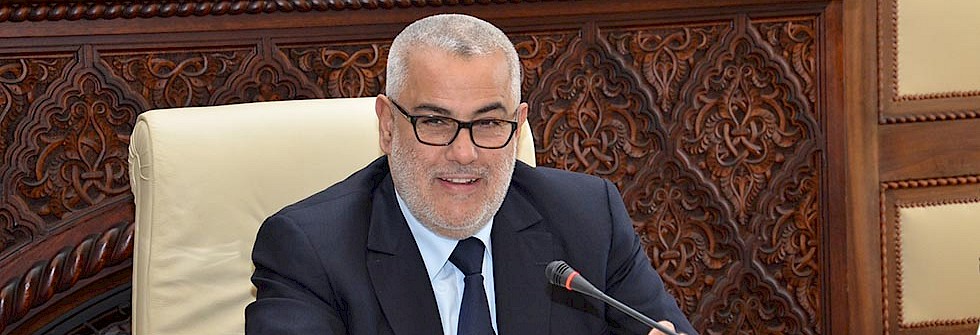 Photo: Government of the Kingdom of Morocco
Photo: Government of the Kingdom of Morocco
